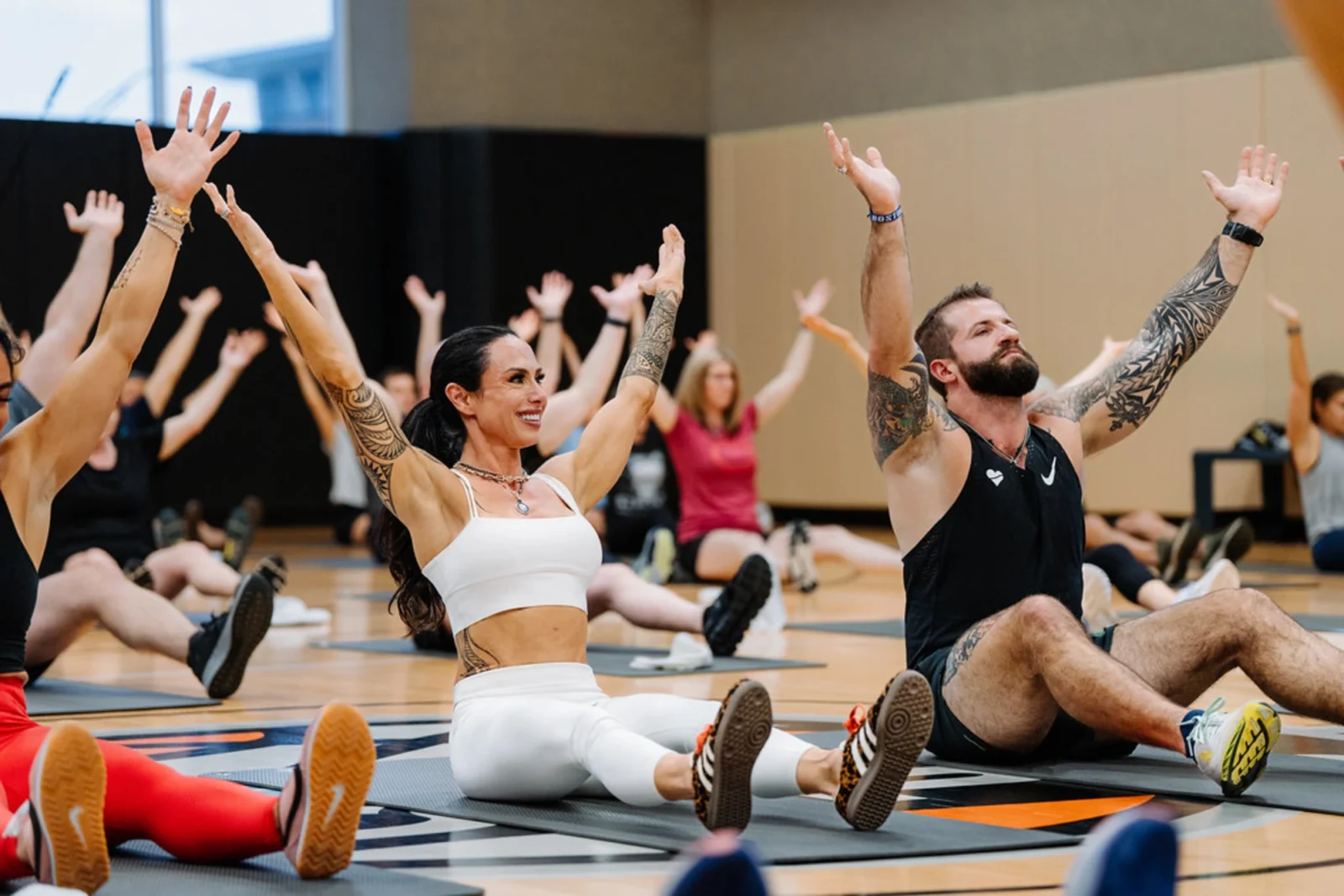Dr. Gabrielle Lyon Spearheads National Muscle Health Month Launch

The renowned physician and wellness personality spoke with Athletech News about November being dedicated to muscle health, as well as why muscle is crucial to all other aspects of health
The month of November has been officially designated as National Muscle Health Month, an initiative spearheaded by renowned physician and strength-training advocate Dr. Gabrielle Lyon.
Dr. Lyon noticed that there’s a designated month for nearly every disease and health concern — men’s mental health, breast cancer awareness, diabetes, Alzheimer’s and many more — except for muscle health.
“All of these things are improved by muscle,” Dr. Lyon told Athletech News. “Imagine a world where muscle is actually recognized as an organ system.”
That’s why she’s helped launch the month-long initiative, 30 days dedicated to raising awareness around the necessity of building muscle mass for healthspan and longevity. The month, now officially recognized by National Today, pairs with Dr. Lyon’s Muscle-Centric Medicine lifestyle, which encourages optimizing skeletal muscle through nutrition, exercise and daily habits.
Dr. Lyon was invigorated by the urgent need to get Americans thinking about their muscles. Over 80% of Americans fail to meet the CDC’s recommended muscle-strengthening guidelines, while over 50% of older adults have clinically low muscle mass.
“If we recognize that muscle is this organ system that we have voluntary control over, then it will make for just a stronger, more robust society,” she said.
Dr. Lyon is hoping the simpler, more accessible goals tied to the month will inspire people of all ages and abilities to think differently about prioritizing muscle health.
That’s where the “Muscle 30” challenge and giveaway come in. Every week this November, Dr. Lyon will choose one person who exemplifies the Muscle-Centric Medicine lifestyle to win prizes.
To enter:
- Record yourself doing any one of the following: eating or prepping a meal with 30g of protein, walking 3,000 steps, doing 30 reps of your favorite strength move (e.g., push up or squat).
- Share on Instagram and tag @drgabriellelyon and #MuscleHealthMonth
Creating a Muscle-Centric Movement
Dr. Lyon is hoping the month will not just get people moving for the 30 days, but spark a cultural shift that builds lasting habits.
“The majority of the population doesn’t train, and it is a daunting task to then ask someone to do it who perhaps has never done it, which is one reason why it’s the whole month,” she told ATN.
“Anything new is going to be intimidating,” she added.
But after taking that first step, she argued, people begin to build confidence to add more strength training days, more reps, heavier weight or a faster tempo into their workout.
For healthcare providers and fitness professionals, Dr. Lyon is hoping they’ll reframe strength training as a “non-negotiable.”
Overcoming Barriers & Reframing Muscle Health
Dr. Lyon recognizes that people often face mental or physical barriers to getting started with strength training, but she doesn’t think of the month as simply a time to pick up weights and change your body composition.
She sees it as building a lifestyle that prioritizes muscle health, which in turn supports holistic, internal health — encompassing mental, metabolic and physical health — over just being outcome-driven.
“If you are moving your body, your muscle health is improving — regardless (of) if your weight is changing or if you’re putting on muscle, that’s very empowering,” she explained. “The actual health of that tissue improves.”

For many women, however, there’s often a fear of lifting heavier weights or becoming “too bulky” from muscle strengthening.
“That’s never going to happen,” Dr. Lyon assured, noting that it’s incredibly difficult to put on muscle, especially for women.
She hopes, instead, that women will opt to try lifting weights, given the modality’s numerous benefits for mental and physical wellbeing, and its ability to prevent and improve chronic diseases.
The Women’s Strength Training Movement Is Gaining Ground
But despite those concerns, women are having their own strength training boom, with new programs catered to their different stages of life and priorities emerging. Meanwhile, gyms are seeing cardio-based exercise increasingly fall behind strength training.
“The trends have always been about loss, what we have to restrict, how we have to minimize things and what we have to lose,” Dr. Lyon noted. “There’s never been a diet trend or health trend that I’m aware of that is all about what we have to gain.”
It doesn’t have to be all about weightlifting, she adds. Choosing to go for a walk, take the stairs over the elevator or prepare a healthy meal are all key components and simple ways to introduce prioritizing muscle health. Even if those actions don’t lead to conventional fitness results — putting on muscle or becoming more toned — they’re vital to overall health.
“It’s not in the outcome, it’s in the action,” she said.
At the end of this month, Dr. Lyon is hoping participants will maintain the momentum and carry those habits into their everyday lives, progressing into heavier weights as they build their confidence.
“I believe that in 30 days we can reinforce meaningful and valuable shifts in people’s lives,” she said. “What I’m hoping is that people continue this and then next year, the challenge is more, ‘We’re at this moment where muscle is taking on more meaning than it ever has.’”



